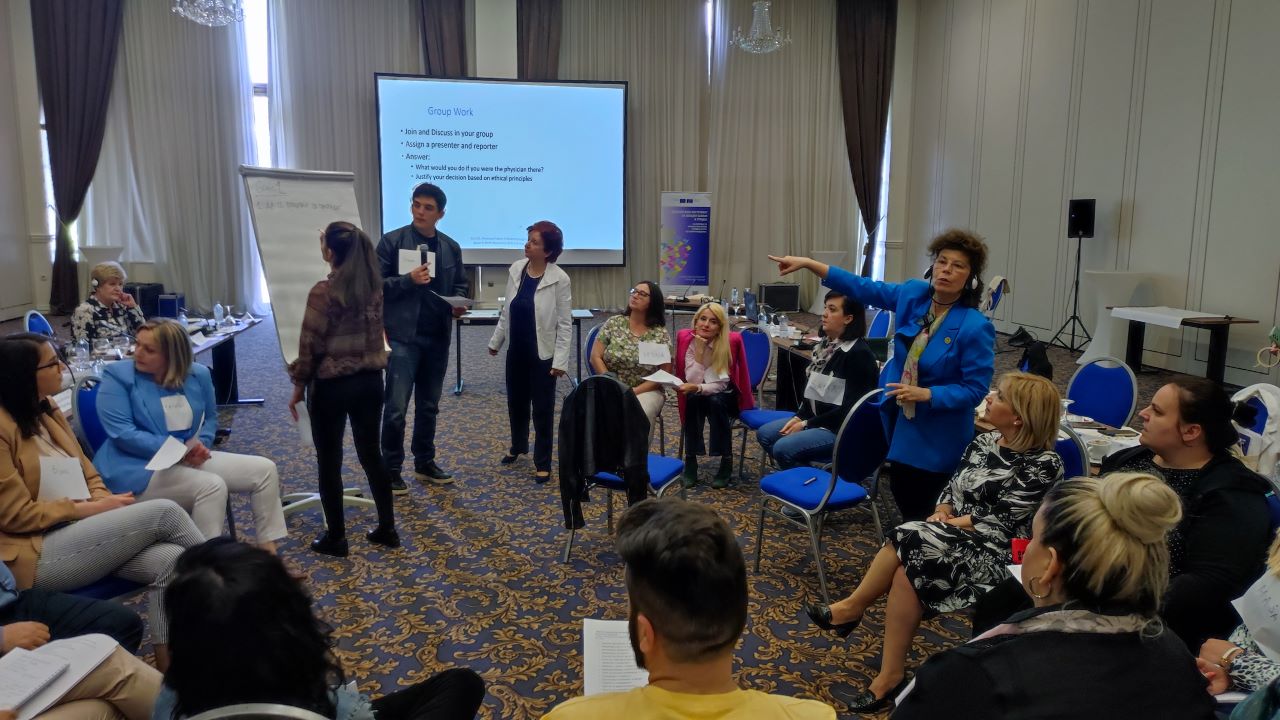Proactive identification, assistance and referral of potential trafficking victims, including children, is fundamental in the process of combatting trafficking in human beings. To support local beneficiaries in the efforts to improve the identification, assistance and referral of potential trafficking victims the joint European Union and Council of Europe Horizontal Facility III action "Strengthening Anti-trafficking Activities in North Macedonia" delivered a multi-disciplinary training for healthcare professionals. Thirty-one participants (general practitioners, gynecologists, nurses, social workers, senior health care specialists, NGO representatives and police officer) from Skopje, Stip, Tetovo, Gostivar and Prilep increased their knowledge and skills in the field and discussed the tasks and moral responsibility of healthcare institutions in preventing and combating human trafficking.
“The Ministry of Labour and Social Policy is executing its competencies regarding preventing and combating human trafficking through the National Referral Mechanism (NRM). There are 30 inter-municipal centers for social work, 5 mobile teams, Centre for victims of trafficking, 3 centres for victims of sexual violence, and the centre for foreigners. Although there is an important progress, we are still facing challenges, this type of trainings are needed to overcome the challenges in the anti-trafficking field.”- emphasised during the discussion Gabriela Madjovska, the Advisor оn Non-discrimination, Protection and Prevention of Human Trafficking in the Ministry of Labour and Social Policy.
In addition to learning about the notion of human trafficking and types of exploitation, the participants were presented with human trafficking indicators and asked to recognise them in different sets of scenarios. They also deliberated on moral responsibility and gender perspective in trafficking victims’ protection and gained practical skills and understanding through practical exercises with case studies.
The learning outcomes of the training encompass raised awareness about human trafficking, the sense of moral responsibility to identify and protect the victims through application of human trafficking indicators and the ways how to protect and refer them through the NRM.


